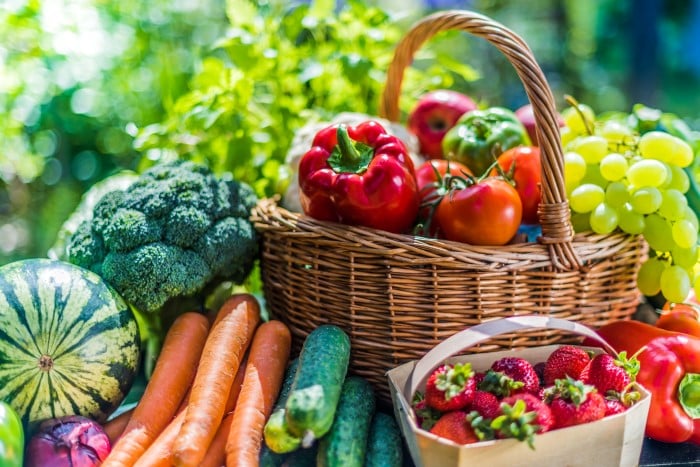World Food Safety Day 2023

Did you know that every day an average of 1.6 million people around the world get sick because of unsafe food? This is one of many reasons why Kiwa’s Food, Feed and Farm teams will be joining the celebration of World Safety Day 2023 on Wednesday, June 7.
Why we should all celebrate World Food Safety Day
2023 marks the 5th edition of World Safety Day (WFSD), an event initiated by the World Health Organization (WHO) and the United Nation’s Food and Agricultural Organization (UN FAO). The annual event was launched to contribute to increased global food security, human health, economic prosperity, agricultural production, market access, tourism, and sustainable development. WFSD does this by drawing attention to foodborne risks, and inspiring action aimed at preventing, detecting and managing such risks. ‘This year’s theme is ‘Food Standards Save Lives’, and we can all affirm that food safety is critical in ensuring that consumers will not be harmed by their food,’ comments Patrick Bèle, Food Director at Kiwa. ‘It requires huge efforts throughout the entire food chain, from farm to fork. This event is a major help in raising awareness.’ Charlotte Vallet, one of Kiwa’s Food Auditors, adds, ‘WFSD is a reminder of what Hippocrates purportedly said in 400 BC, “Let thy food be thy medicine and thy medicine be thy food”.’
Food safety facts
Some of the numbers about food safety – or the lack of it – are quite sobering. Here are some good reasons why we believe in the work we’re doing.
Death by contaminated food
40% is younger then 5 years old
1,6 milion sick people
Unsafe food cause over 200 diseases
$110 billion lost annually
The role of food safety standards
An important instrument in achieving food safety is standardization. Patrick explains, ‘Food standards are a big part of food safety. If you realize that microbiological and chemical contamination are the largest concerns in food safety, it’s easy to see how standards can provide vital guidance to farmers and processors on how to handle food hygienically. For example, standards offer clearly defined maximum levels of additives, contaminants, pesticides and veterinary drugs residues that can safely be consumed by all. They also specify how food must be measured, packaged and transported to keep it safe.’
More and more food safety standards include sustainability topics, notes Charlotte. ‘Thanks to the standards in areas such as nutrition and allergen labelling, consumers can know everything they need to know about the food they buy in order to make safe choices.’

Building confidence worldwide
Kiwa operates on the cutting edge of food safety standardization and protection of consumers’ health. With expertise in food safety and security, animal feed, animal welfare, (organic) production, and aquaculture, we offer global training, certification and verification services across the entire agricultural, feed and food industry, serving customers in over 40 countries in the Americas, Asia, Europe, and Oceania. ‘We work with farmers and producers, but also with distributors, wholesalers and retailers, to design, audit, and monitor protocols,’ explains Patrick. ‘The goal is to provide assurance, build customer confidence, and offer transparency and traceability.’
Covering all the essentials
Covering all the essentials
Charlotte offers an example of how standards work. ‘Retailers and food manufacturers demand affordable, safe, and good quality food products for their customers to purchase. This means companies that are part of their food supply chain must meet strict requirements. The FSSC 22000 offered by Kiwa helps these companies to concentrate on the essentials: delivering high-quality, safe products, and eliminating waste. The FSSC 22000 is a good example of a scheme that offers complete certification for the auditing and certification of Food Safety Management Systems (FSMS).’
Kiwa is approved for delivering certification on many standards related to food safety around the world. These include Global Good Agricultural Practice (GAP), International Featured Standards (IFS), British Retail Consortium Global Standards (BRCGS), Food Safety System Certification 22000 (FSSC), Feed Additives and pre-Mixtures Quality System (FAMI-QS), Organic, and Good Manufacturing Practice + Feed Safety (GMP+ FS).
Food safety is everyone’s responsibility
WFSD 2023 is an excellent way to draw attention to the importance of, and challenges in, food safety, says Patrick. ‘Initiatives like this contribute to a worldwide cultural change. WFSD affects policy makers, food businesses, educational institutions, workplaces, and even consumers – all of whom have a role to play in keeping food safe. At Kiwa, we are proud to be part of this movement: with our Food, Feed & Farm employees, we are on a mission to grow trust and protect consumers’ health locally and on a global scale.’
Additional information
To learn more about World Safety Day, check these resources:
